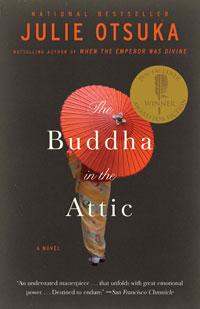


Women married by proxy to Japanese men working in the United States were shipped across the Pacific to husbands whom they had seen, and who had seen them, only in photographs. The people supposed to be speaking are Japanese "picture brides" of the early 20th century. The "we" of The Buddha in the Attic is an artificial literary construct that does not include an "I". Some languages make a distinction between the inclusive "we", meaning "I and all of you", and the restrictive "I and others not including you". But it's hard to identify strongly with a whole group, even if one is interested in it as a group, and even if its members are individually sympathetic.Īnd "we" sets up two groups: We and They/You. For one thing, the reader identifies easily with an "I" narrator or a "he/she" protagonist, and though some critics sneer at sympathetic identification and some novelists delight in frustrating it, it remains a fundamental element of the pleasure of story. It brings up questions that don't come to mind with the familiar first or third person singular. Writing a long narrative in the first-person plural is a risky business. The tone is often incantatory, and though the language is direct, unconvoluted, almost without metaphor, its true and very unusual merit lies, I think, in that indefinable quality we call poetry. Yet the book has neither a novel's immediacy of individual experience, nor the broad overview of history.
.jpg)
Information is given, a good deal of it, in the most gracefully invisible manner and history is told. There are novelistically vivid faces, scenes, glimpses, voices, each for a moment only, so you cannot linger anywhere or with anyone. It is closely and carefully based on factual history/ies. This passage may give a clue as to how Julie Otsuka's book is to be read. Some of us were farmers' daughters from Yamaguchi with thick wrists and broad shoulders who had never gone to bed after nine." Some of us were from Nara, and prayed to our ancestors three times a day, and swore we could still hear the temple bells ringing. "S ome of us on the boat were from Kyoto and were delicate and fair, and had lived our entire lives in darkened rooms at the back of the house.


 0 kommentar(er)
0 kommentar(er)
